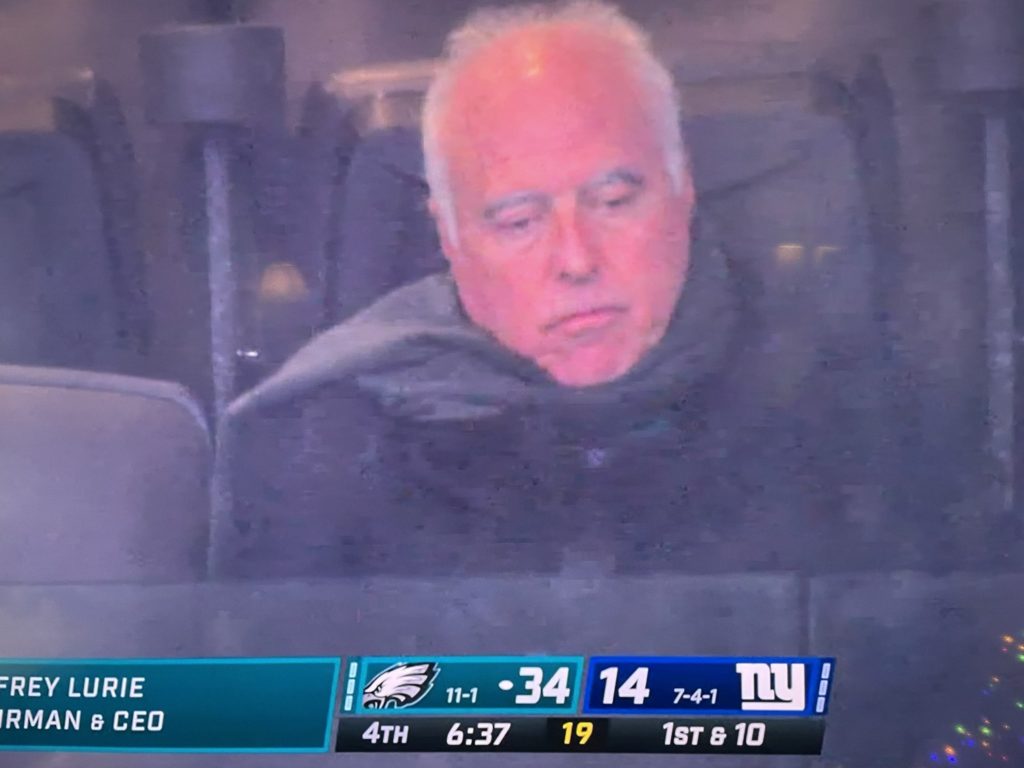Ad Disclosure
Consideration: Jeffrey Lurie Usually Only Fires Coaches After an Entire Season of Dreck

Saw this on Twitter the other day, and for the life of me cannot remember who was talking about it.
The topic was Jeffrey Lurie, and discernible patterns in how he fires coaches.
What do the shit cannings of Doug Pederson, Chip Kelly, Andy Reid, Ray Rhodes, and Rich Kotite* have in common? Their final seasons were mostly garbage from start to finish.
For instance:
- Doug went 4-11-1 and Lurie reportedly was not on board with his plan to right the ship
- Kelly was 6-9 at the time of his firing and had made a bunch of bogus moves after sending Howie Roseman to the broom closet
- Andy’s guys quit on him during a 4-12 campaign
- Rhodes went 3-13
- Kotite finished 7-9 after starting 7-2
*The Kotite example is a slight deviation because Lurie had just bought the team a few months prior to the start of the 1994 campaign. There were questions about retaining the head coach, simply based on the idea of whether or not Kotite was Lurie’s type of guy. Regardless, the Birds started really well that year before crashing and burning, and were coming off an 8-8 season the year prior.
Everything else follows a somewhat linear path. Ray, Andy, Chip, and Doug all had horrendous final seasons in Philadelphia, while Nick Sirianni’s team collapsed. There’s a difference there. Nick’s team wasn’t shit for the entirety of the season. At one point, the QB was MVP frontrunner and the team was the odds-on favorite to make the Super Bowl.
The point in bringing all of this up is that Lurie typically has time to stew on a firing, and think about it earlier in the year. Everybody knew Andy was toast by early November. In this case, Lurie was looking at a 10-1 team at Thanksgiving had no thought whatsoever about a coaching change. It wasn’t even a question, nor was it a question after they lost to Dallas and San Francisco. If Lurie does indeed fire Nick Sirianni, that’s going to be the end result of a thought that likely first entered his mind in December, and therefore shrinks the window for action and replacement. It provides less time for the practice of emotional intelligence.
Something to consider as we move forward here.
Kevin has been writing about Philadelphia sports since 2009. He spent seven years in the CBS 3 sports department and started with the Union during the team's 2010 inaugural season. He went to the academic powerhouses of Boyertown High School and West Virginia University. email - k.kinkead@sportradar.com